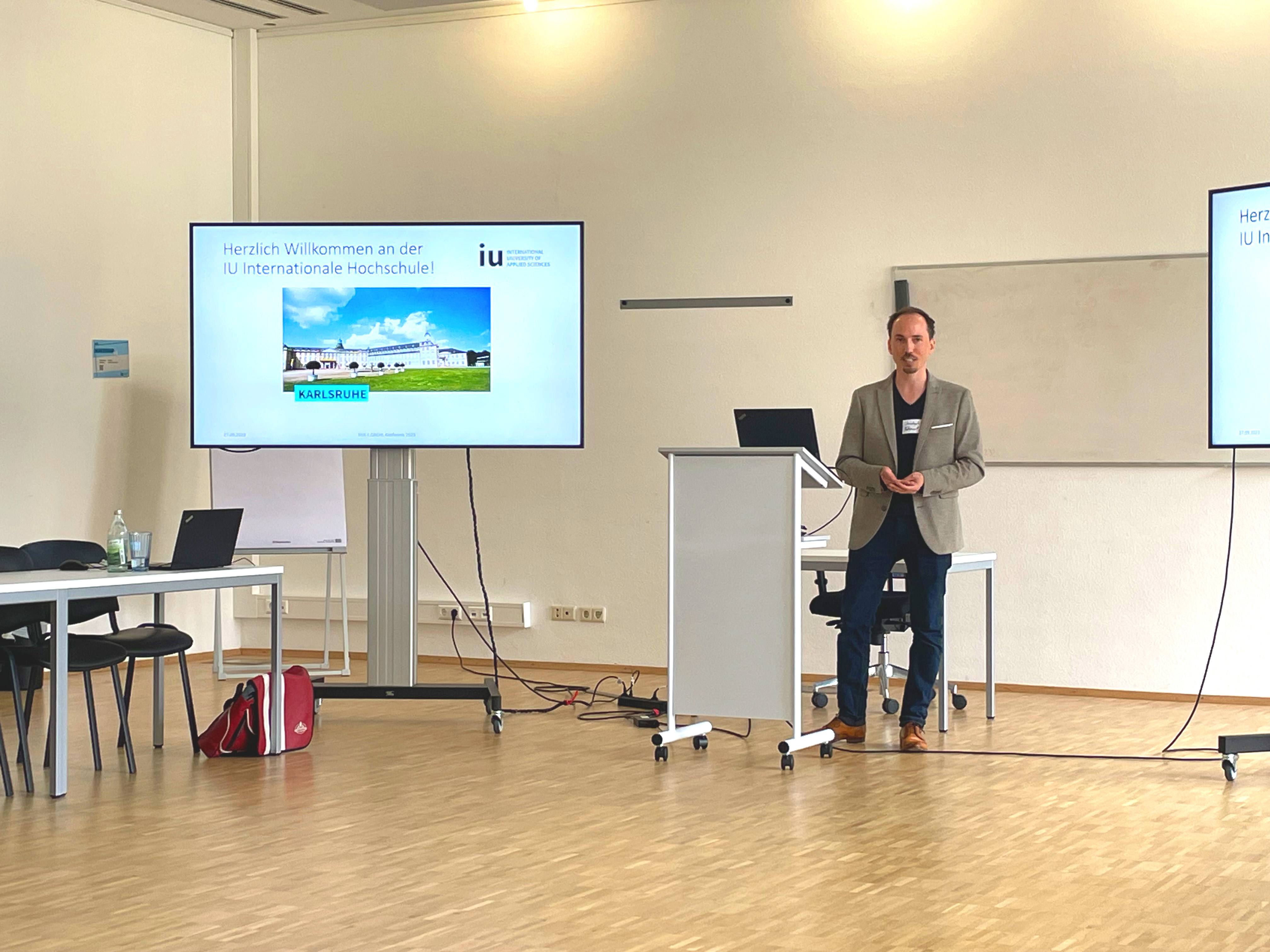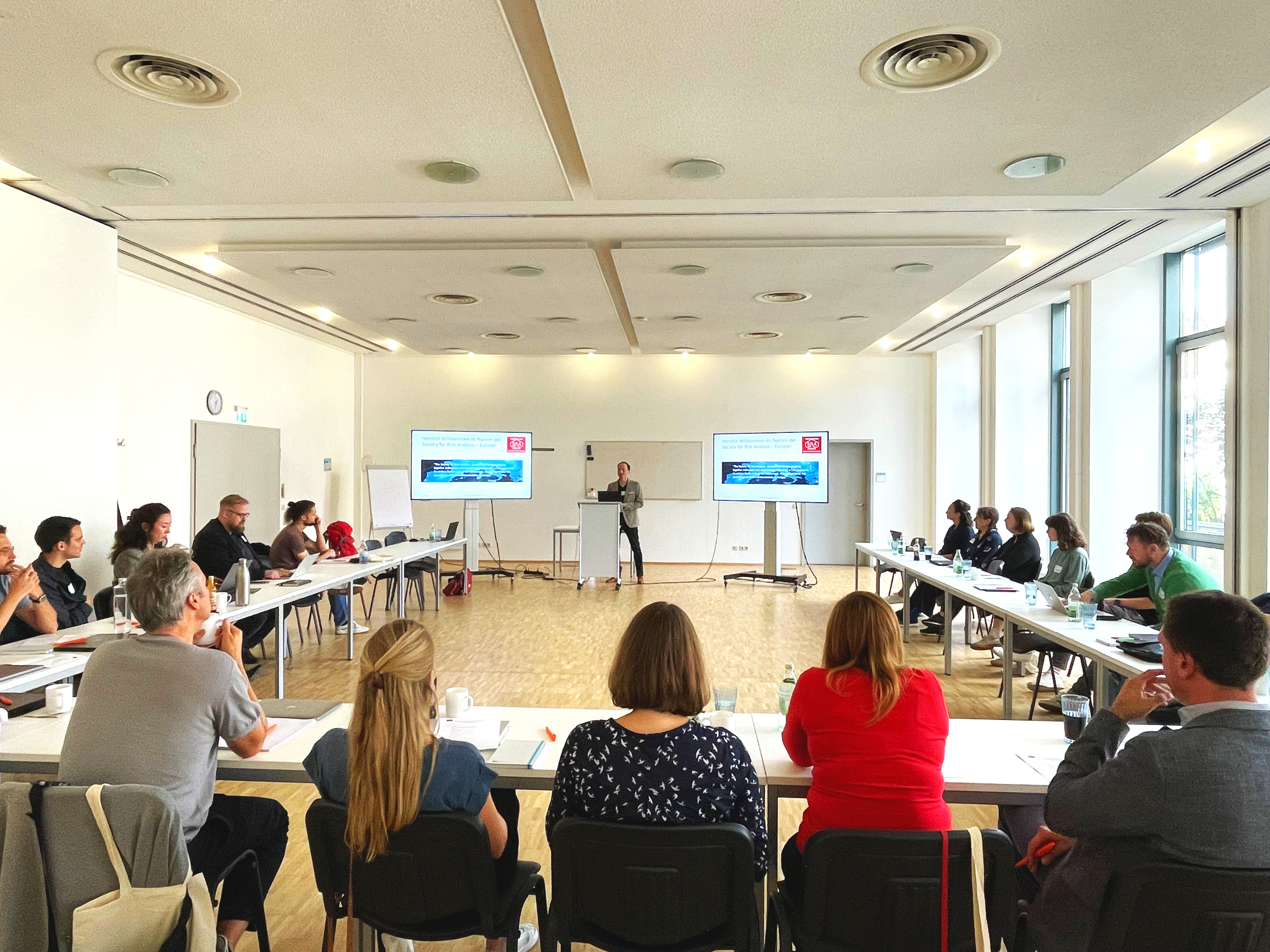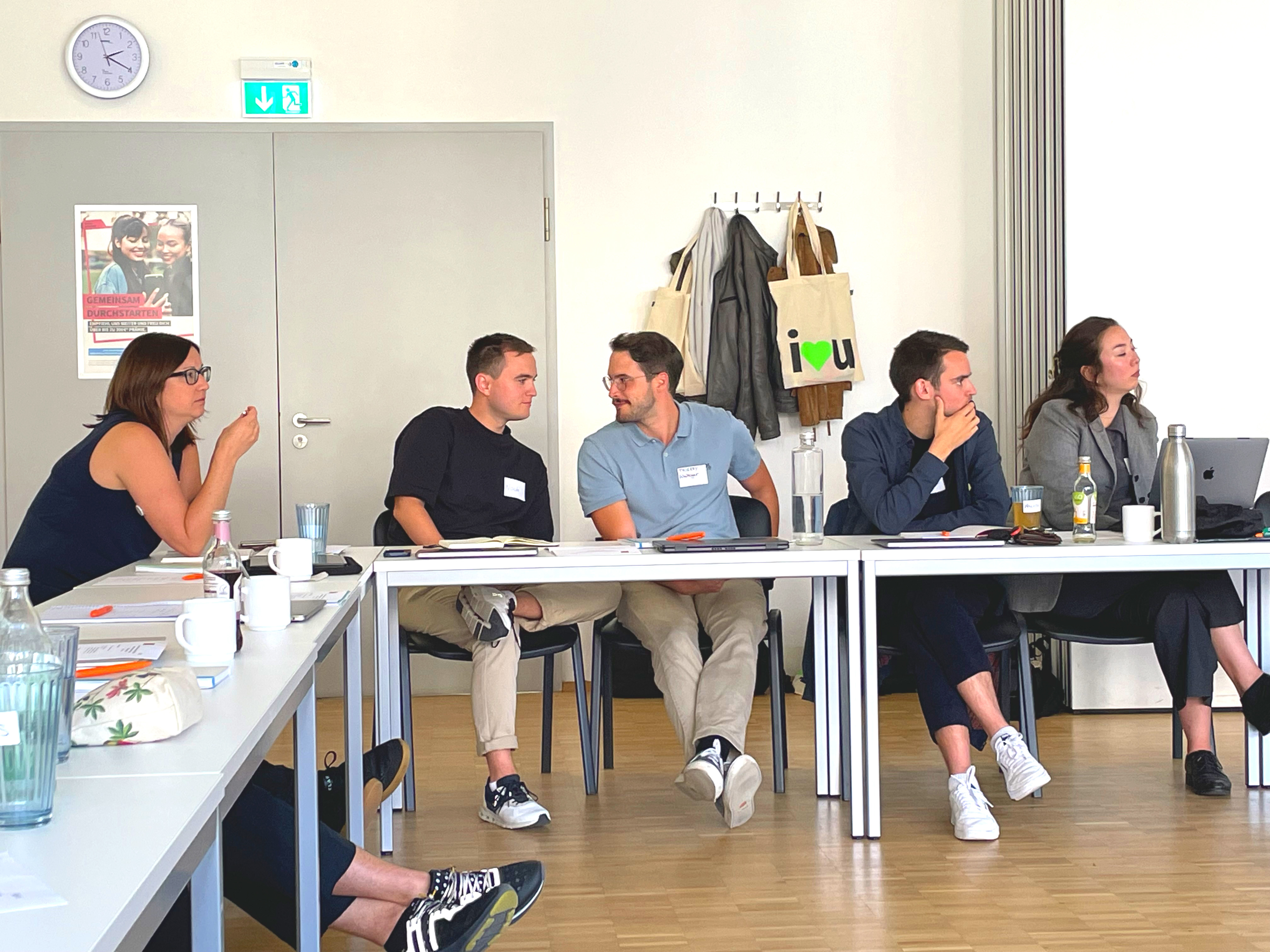The website has been updated on October 12, 2023.
The annual conference of the DACHL chapter of the Society for Risk Analysis - Europe (SRA-E) took place at IU International University of Applied Sciences, campus Karlsruhe from 27 to 28 September 2023. 25 risk researchers came together to discuss methods in risk research. 15 speakers presented their methods, research results and ideas. Afterwards, there were lively discussions - often extending into the breaks. The lectures ranged from the tightrope walk between giving information and influencing, to the perception of new technologies, to the risk assessment of chemicals.
In addition to 13 regular lectures, two keynotes were held. Keynote speaker Philipp Sprengholz presented his findings from the COVID-19 Snapshot Monitoring (COSMO) study, in which he investigated the perception and pandemic-related behaviour of citizens. Peter Wiedemann, another keynote speaker, critically examined the relevance of surveys on the risk perception of the population.
The DACHL chapter is very much looking forward to hosting the 4th Annual Conference “Methods in Risk Research” in autumn 2024.
Programme
The programme of the conference is still available through this link.













